Cash vs Credit – How to Spend Money (the Smartest Way Possible)
Cash vs credit – do you know the best way you should be spending your money?

Author: Kari Lorz – Certified Financial Education Instructor
Everyone (including me) talks about saving money, but everyone wants you to spend money on their products, of course! So what’s a smart Mama like you to do? You need to make sure you are spending money the “right way”!
What’s the right way, you ask? Well, it’s the way that works best for you! The way that brings you the most benefit with the least amount of risk. We’re going to walk through the different payment methods, the benefits, and the pitfalls to avoid! And after reading this post, you know how to maximize your purchases and avoid common mistakes! So let’s go spend some money!
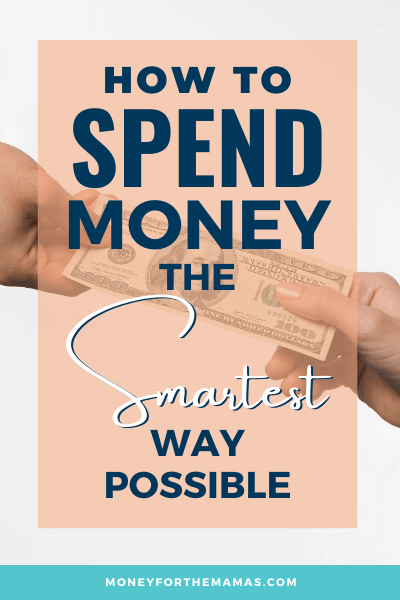
This post may contain affiliate links. If you make a purchase, I may make a commission at no cost to you. Please read my full disclosure for more info
How much money do Americans actually spend?
Let’s cut to the chase, shall we? The latest available Bureau of Labor data, from 2018, cited that the average American spent $61,224 for the year! (Yowza!) Dang, I went through a lot of money! How much money do you think you spent last year?
According to the report, spending was up 1.9% over last year, which included the categories of…
- personal insurance (up 7.8%)
- food (up 2.5%)
- transportation (up 1.9%
- housing (up 1%, ownership was down while renting was up)
- healthcare (up .8%)
There was one area where our spending decreased, can you guess what it was? I saw this and was a bit saddened. It was…
Education (down 5.6%)
I am guessing that college is getting too expensive, so people aren’t going. But I think we can all agree that we wish this category were trending up, but due to more people going and not just an increase in cost.
The report also cited the average pretax income was $78,635, which is good because that means we aren’t spending more than we make. (This is a very generalized and averaged statement, as there were 327.2 million people in the US at the time of the report).
What is a spending strategy?
This is a fair question, as we don’t really think of spending money in a strategic sense. Yet, you should have one! If you don’t, then you’re leaving money on the table in a big way! So, I’ll talk you through how my family spends money, as it will make it more clear…
- 90% of our spending goes on one credit card to maximize 2.5% cashback (that a great rate, it’s uncomplicated, and we use that money back strategically too! It pays our yearly dues for our Disney Vacation Club.
- At Target, I use my REDcard to get 5% off each transaction and get special coupons and discounts.
- On our annual Disney Park vacation, we use our Disney Chase Visa to save 10% at the time of purchase (most places) and then earn 1% back.
- I use ibotta ( sign up for $10 in welcome bonuses!) & Fetch to scan all my receipts to earn points to buy gift cards for Target. Then, I use those gift cards to buy diapers (as I buy in bulk to score more gift cards) or save them for Christmas shopping.
There are a few other smaller things we do, but the above examples give you a good general idea of what I mean by spending strategically.
You may be thinking that this sounds like a lot of effort to go through for limited returns. It’s not. This process is so automatic by now, it’s second nature to me, but I do still think about when is the right time to buy things, is it on sale, a gift card deal, a good value, etc. All of these small returns add up to big savings!
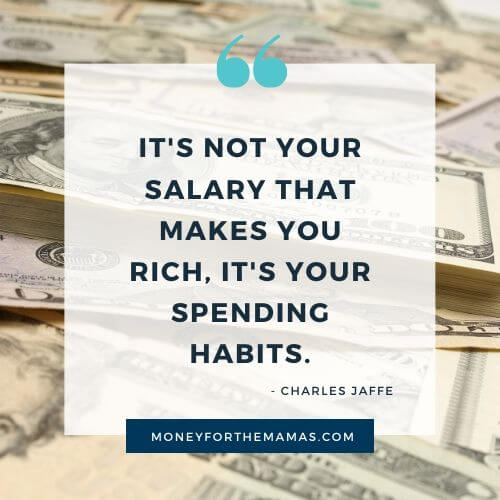
Why we have a spending plan for using credit vs cash
Now, these are the benefits of using a credit card for my family. Naturally, your family will be different (we are all different, and that’s great!)
We save money
For my example above, if we spent the average amount mentioned above. $61,224, and put it all on our 2.5% cashback card that would have been $1,530 back into our pocket! Not too shabby!
It’s less complicated
For the most part, we use one card, easy peasy lemon squeezy! Where people often get into trouble is that they use cash for something, use their debit, and then you use a few of your credit cards (the average American who has cards has an average of four). Then there’s your PayPal purchases, Venmo, etc. So you can see how hard it would be to track your money and see where it all went!
We earn money
So this strategy isn’t for credit card beginners or those who may use their cards too liberally. This is for the hardcore and super organized making money geek! It’s called credit card farming (or churning). It’s where you sign up for cards specifically to get the bonus they are offering, and then you close the card and move on to the next offer. You can read about how I made $1,000 one year; see #9 here with this strategy.
How do you pick the right spending strategy?
The first thing you need to do is to know yourself. This sounds kooky, but hear me out. If you know that you aren’t very organized, then don’t pick a method with lots of moving pieces. For example, there are cards where you get 5% back on groceries one month, and then the next card is 4% back on gas and entertainment, and then it switches it up in two months to 3% back on big box store purchases, and on and on. To me, that’s too complicated! But if you have the time to devote to this and are organized, then great, do it! So think about
- Is this an easy-to-use system for you?
- Is it easy to track and see where your money went?
- What is your return on time?
- Will you stick to your budget with this payment method?
Let’s talk about another important point, how you will spend your savings? As I said above, we use our rewards to pay our vacation dues. We would have had to spend the money anyway, so this was indeed a savings. Yet, if you decide to go a buy a custom cat toy structure with organic bedding and you’re only just thinking of getting a cat, then you just wasted this money. Again, it’s only a savings if you use it on things you would have had to buy already.
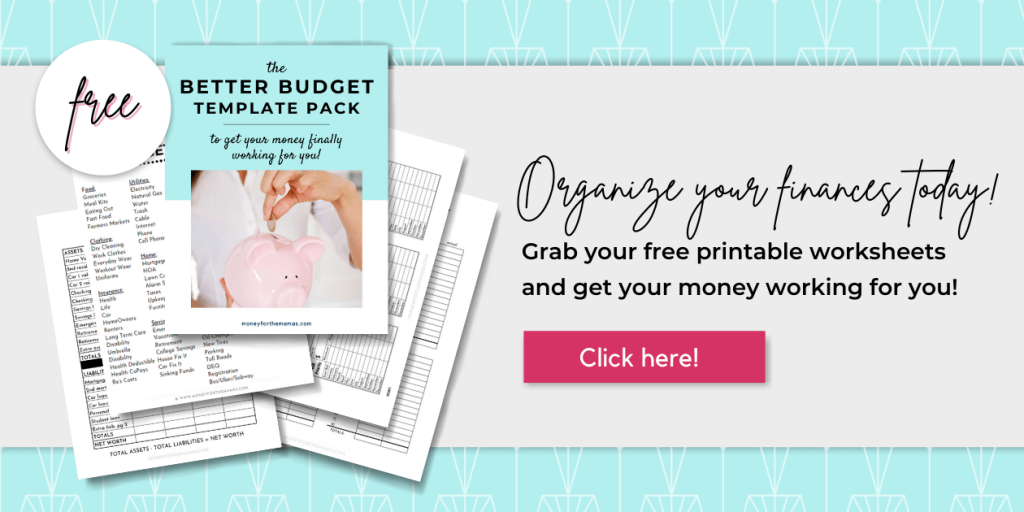
The two main payment methods
Using credit cards as your preferred payment method
I am a big fan of using credit cards, as I really like getting rewards. And it makes it easy to keep track of where our money goes. You just need to make sure that you will actually use your rewards. For example, many have travel rewards cards, but they don’t ever travel. In fact, a decent percentage of travel rewards are never redeemed. Because we “intend” to use them, we just don’t get around to actually doing it.
Bummer. Look for a card…
- Has rewards that you will actually use
- Has rewards that you understand how you earn them and their actual value (not just perceived value)
- No annual fee (or a minimal fee)
- Decently low-interest rate (but ideally, you’d pay your cards off in full every month)
- Has rewards that don’t expire or have a very long shelf life
Even though I encourage people to use credit cards (for their earning potential), I want to be very clear. If you are not paying your balance off in full every month, you negate any benefit you might get from earning points or rewards! All too often, we get into trouble from overspending, and then we end up paying crazy high-interest rate fees. So please, be honest with yourself and your habits!
Don’t use a credit card if…
If you are hesitant to use cards (because you may have gotten into credit card debt in the past), kudos to you for being cautious. America absolutely has a consumer debt problem! Don’t get me wrong; this isn’t a “you” problem; this is an “us” problem – for a few main reasons…
- Formal personal finance education isn’t taught in our school system as a collective whole.
- We learn about handling our money from people who may not be any good with it either. I.e., our parents, friends, etc.
- Huge corporations spend billions of dollars figuring out the best/easiest, and fastest way of making us spend our dollars through marketing.
- We are part of an instant gratification society – we want what we want, and we want it now!
Credit cards aren’t for everyone, and I am 110% okay with you playing it safe in this area and continue to keep using cash. Yet, if you feel you are ready to earn reward points, then get a good reward card and ask them to lower the limit. This way, you can’t overspend (don’t tie it to a bank account to cover overspending, just have it deny the transaction). This will allow you to build good credit (because you’re paying it off every month), and you can earn some rewards.
- Sign up with ibotta and get $10 sign up cash as a new customer!
- Earn points on ANY receipt from ANY store and redeem for gift cards with the fetch rewards app.
- Sign up with Inbox Dollars and get paid to read emails, watch videos, and take surveys. Easy peasy!
- Get free gift cards & cash for the everyday things you do online at Swagbucks. Use the link and get a $5 bonus
- Save money on gas by signing up with Upside; it gives you up to $.25 cents cash back per gallon! Use the code AFF25 when you sign up; you’ll get a $.25 cents per gallon bonus!
- Sign up with Cash App and get a $5 bonus when you use code “NRTZMHV.” You have to complete the sign up requirements to get the bonus! Read how to do this here with point #1.
Using all cash as payment method
The biggest reason (and benefit) to using all cash when spending money is that you cannot overspend! This is huge, especially if you tend to be a bit too free with your spending. Yet, you need to be dedicated to the process, and you need to be organized!
Dave Ramsey has popularized the method and his get out of debt strategy. Honestly, it’s not glamourous, but it absolutely works if you follow the plan!
In fact, it’s been proven (across multiple studies) that when you pay with cash, you spend less. This is because you have a more emotional connection to cash than when you use credit; you aren’t as “connected” to the money. One of the most often cited studies is one conducted by Dun & Bradstreet, where the company found that people spend 12-18% more when using credit cards instead of cash (yet finding a first-hand copy of the study is hard).
McDonald’s famously reported (years ago) that its average ticket was $7 when people use a credit card versus $4.50 for cash. Also, ValuePenguin, found that with credit cards, customers have been shown to leave tips that are 13% larger than their counterparts who paid with cash. This isn’t a bad thing but something to be aware of.
If you’re going to go all cash, you’ll need a few things to stay organized, which is the key to success with this method!
You’ll need some cash envelopes and a wallet. That’s it. If you’re just starting out and unsure how you’ll like it, you can grab some of my free templates, just print, fold, and tape. You’re all set!
Yet, it’s kinda fun to get creative and get envelopes that are very specific to what you’re saving for (there are so many possibilities on how to use & save with cash envelopes. I use them as sinking funds to save up for specific events, like Christmas, vacation, soccer camp, birthday presents, etc.
You can grab some free budgeting forms here, and there are some budget-friendly and cute wallets right on Amazon!
Can I use a debit card?
Yes, you can opt to use a debit card vs carrying cash around. However, this makes it mentally easier to spend money (you’re still swiping plastic and not handing over dollar bills). Also, you can’t use the cash envelope budgeting method with a debit card.
Many people seem to think that using a credit card is “safer” regarding protection from theft. However, Investopedia says, “Some debit cards—particularly those issued by payment processors, such as Visa or Mastercard—are starting to offer more of the protections enjoyed by credit card users.”
The smartest way to get the benefits of both types of payment methods
You can combine the two main methods, cash and credit card, to get the best of both worlds! First, get a rewards credit card for your monthly bills (automate bill payment first thing for convenience ). Then use cash envelopes for your discretionary budget categories like groceries, gas, clothes, fun money, etc. Many people do this, but just be sure to make an apparent distinction between what’s a card purchase and what’s a cash purchase.
At the end of the day
Remember that the first step is to make sure that you know yourself and your spending habits. Don’t set yourself up with a system that doesn’t play to your strengths or bring you closer to your goals. Identifying your spending strategy can help you earn a lot of money, and who couldn’t use an extra $1,530 in their pocket! I know I could, could you?
Related articles to Cash vs Credit – How to Spend Money (the Smartest Way Possible):
- How to Payoff Debt – This is the Best Way to Do It!
- The Ultimate Budget Category List to Help You Make a Foolproof Budget
- Are Interest Rate Fees Stealing Thousands From You?
- The Cash Envelope Template That Every Budgeter Needs

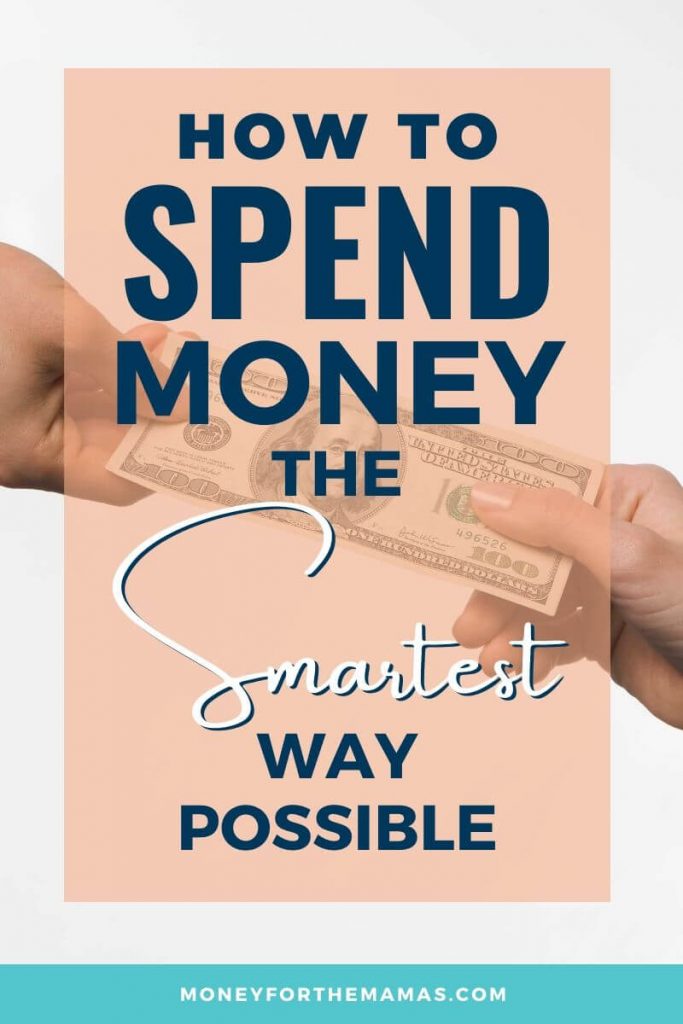


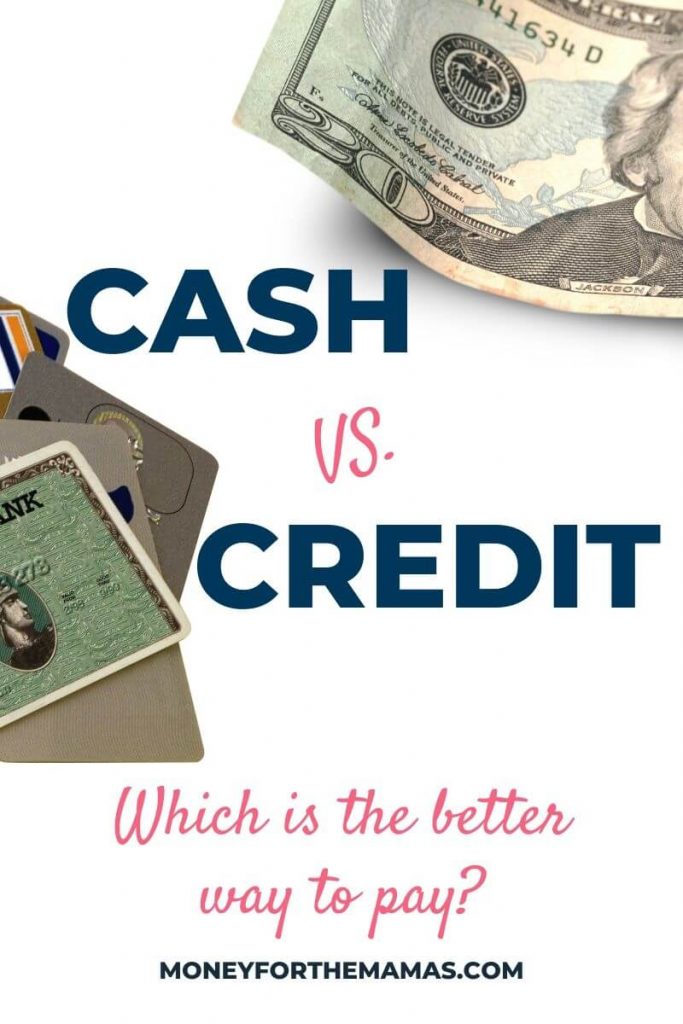

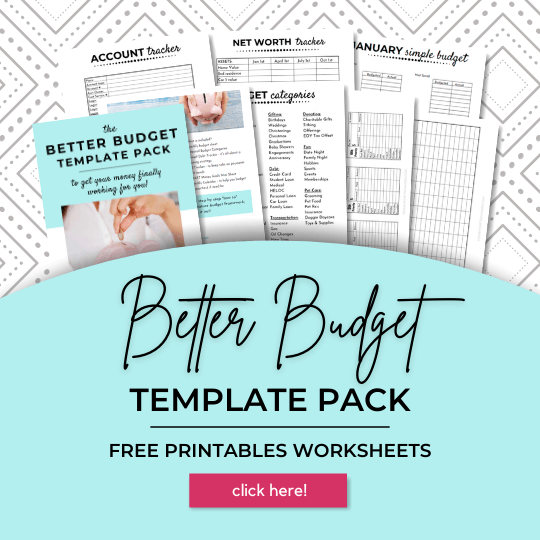
These are great tips! We use credit cards for airline point and perks (we travel a lot!), but we pay it off in full every single month. We’ve never had to pay any interest because we manage our money and save to do the things we want!
This is the textbook way on how to use credit cards! So smart!
While budgeting isnt my favorite thing to do, it has been so helpful to create a solid budget. Now we are able to save and invest money too!
Ohhh investing! So important to save for retirement!
Great information! Thank you for sharing. Definitely need to ensure you pay the cards off each month & I love Dave Ramsey’s envelope system!!
The envelope system works great!
What interesting facts I didn’t know. It’s sooo true that your spending habits make your rich, not your income! We make decent money but have done very well financially by consistent budget planning and smart spending habits for the 13 years we’ve been married. It Has paid off greatly and we are debt free.
Yaaa!!! It’s your spending habits totally! Lifestyle creep is a real thing, and so many don’t see it “that way”, until it bites them in the butt!
Needful content. Keep creating content like this! Tons of love for you
Love!
Very good, love your blog as I am also a very frugal mom with finance.
Great tips! I definitely like making some money when I spend money. I have been wanting on getting a credit card where I get traveling points but I am afraid I will never use them!
Never using your travel rewards is a common pitfall. It sounds great, but many don’t take advantage of them. I suggest a straight percent of cashback (above 2% is good). Because you can always use cash 🙂
It’s surprising to see how many people don’t take the time to think through their spending habits and how they can improve them in order to improve their overall financial well-being. While I wouldn’t say that ours is perfect, by any means, we have made some smart choices that really do help. For example, when it comes to drugstore shopping, we always shop at Shoppers Drug Mart. Why? They have a really good points system. Then, pay attention to when they have double points days to collect even more. Come Christmas, those points can be used for Christmas gifts (they sell a lot more than just medication), food, holiday treats, etc. Free money during a time where most people are usually financially strapped!
Such a smart idea to focus on using points during Christmas! OUr spending increases so much during this time, and come January when the bill comes we all have a mini heart attack. So glad you found a system that works!
You are right Kari, these strategies definitely aren’t for the faint of heart! You definitely need to know yourself and be organized to make it work. I like the idea of thinking of it as a game, that’s what I do, and it keeps things interesting. Great tips!
Yes, knowing yourself (and your tendencies) is so important. If you’re never going to track cash because you hate it, then you shouldn’t use cash!
Thanks for the helpful tips! I also like using cc because of the rewards but sometimes you gotta know the right ones to use )
Totally true, lots of credit card options out there! You need to be picky!
We gave up credit cards several years ago and then realized how much reward money we were missing out on. Started opening up a few last fall and haven’t regretted it.
It’s great that you’ve experimented with both methods!
These are great tips! It’s really interesting to read the 4.50 vs 7 dollar bill when using cash vs credit.
It’s definitely a shift in value when you look at how much something costs total (not just the price at on the tag).